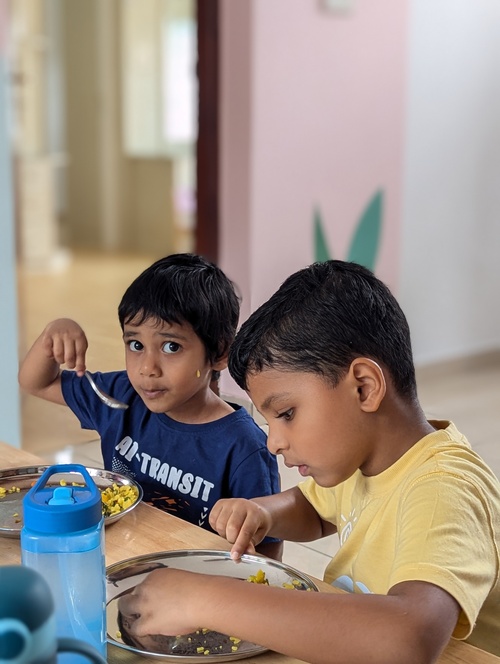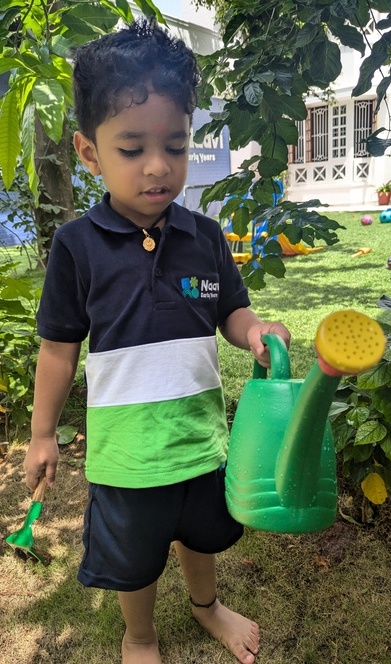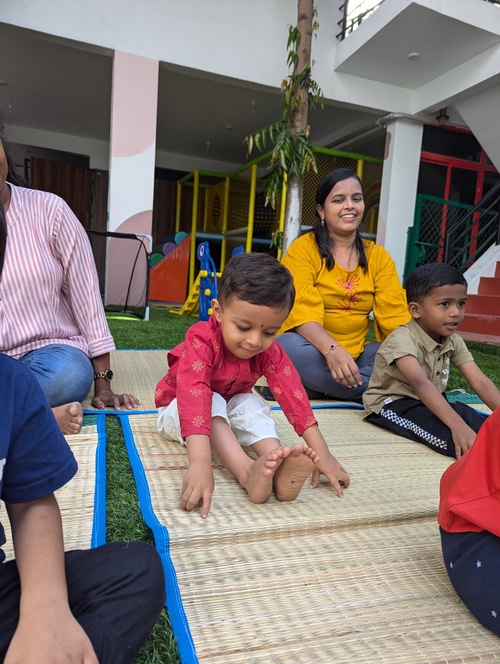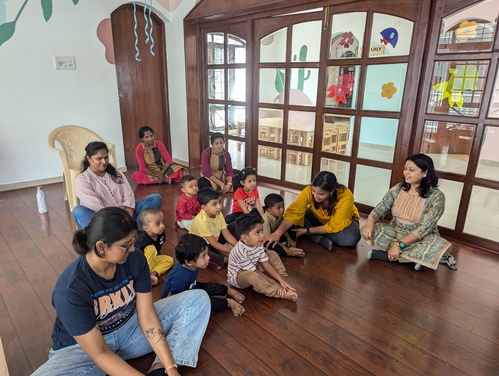Our Curriculum






At Naavi Early Years we follow the Cambridge Early Years Programme, designed to provide a strong foundation for young learners. This curriculum is play-based, inquiry-driven, and focused on holistic child development, ensuring that children grow into confident, independent, and lifelong learners.
Key Areas of Learning
The Cambridge Early Years curriculum is structured around six interconnected areas of learning, each supporting the development of essential skills and knowledge.
Communication and Language
- Developing listening, speaking, and early literacy skills.
- Encouraging rich conversations, storytelling, and role-play.
- Supporting phonological awareness and early reading and writing skills.
Physical Development
- Enhancing fine and gross motor skills through movement, play, and hands-on activities.
- Promoting self-care, hygiene, and a healthy lifestyle.
- Encouraging outdoor play for coordination and strength.
Personal, Social, and Emotional Development (PSED)
- Fostering confidence, self-awareness, and emotional resilience.
- Developing social skills, empathy, and the ability to work collaboratively.
- Encouraging independence and responsibility.
Literacy Development
- Introducing early reading through phonics, stories, and picture books.
- Encouraging mark-making, drawing, and early writing skills.
- Developing vocabulary and comprehension skills.
Mathematics
- Exploring numbers, counting, and problem-solving through play.
- Understanding shapes, patterns, space, and measurement.
- Encouraging hands-on activities to develop mathematical thinking.
Understanding the World
- Encouraging curiosity about the environment, nature, and different cultures.
- Developing early scientific thinking through hands-on exploration.
- Introducing technology and its role in everyday life.
The Experiential Learning Approach
Learning is Experiencing at Naavi. The programme is designed to be practical and application-oriented, ensuring that children not only learn theoretical concepts but also internalize and implement them in their everyday lives. Our educators integrate:
Role-Playing Scenarios
Enabling children to practice social skills in simulated real-world situations.
Storytelling and Discussions
Helping children reflect on values, emotions, and ethical decision-making.
Hands-On Activities
Providing structured experiences that reinforce self-management and responsibility.
Field Trips and Community Engagement
Offering exposure to diverse environments that expand their understanding of the world.





For Enquiry




